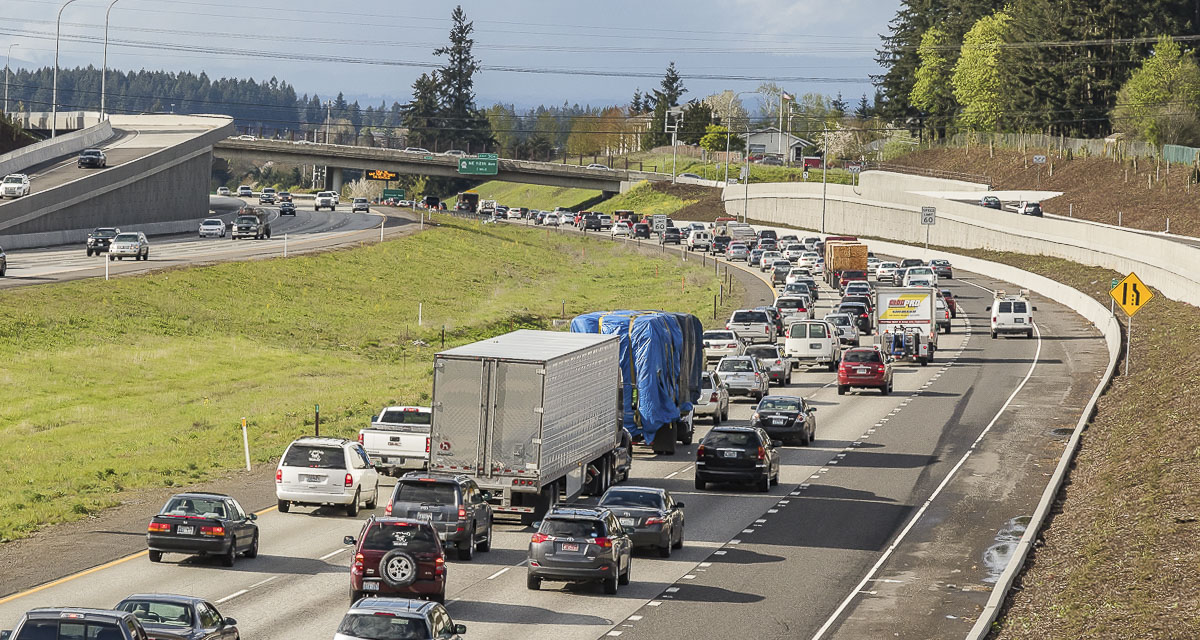
The reasons cited include increased costs to capital projects, reduced gas tax revenue, and less-than-expected federal grant funding for Move Ahead Washington transportation package projects
TJ Martinell
The Center Square Washington
The Washington State Department of Transportation’s accounts face a combined $900 million funding shortfall by the 2027-2029 biennium, according to a state Senate committee. The reasons cited include increased costs to capital projects, reduced gas tax revenue, and less-than-expected federal grant funding for Move Ahead Washington transportation package projects.
For the current biennium under the 2024 supplemental budget, WSDOT’s budget and revenue are evenly matched at $14.55 billion. However, at current funding levels numerous accounts will be in the red, including:
- $7.4 million in the State Patrol Highway Account
- $137 million in the Puget Sound Ferry Operations Account
- $74.7 million in the Motor Vehicle Account
- $556 million in the Move Ahead Washington Account
- $73.8 million in the Capital Vessel Replacement Account
Senate Transportation Committee Budget Coordinator Haley Gamble warned members at the committee’s Friday meeting that “while we’re only looking at a six-year window, I can tell you that the red numbers grow in the out years. The financial outlook gets steadily worse as we move into the future.”
One of the ongoing issues is that “the revenues have never really recovered from that COVID drop we saw.”
Gamble added that an impending gas tax revenue forecast update showing lower than estimated levels will also affect state agency funding.
“The budget has been balanced with some significant fund transfers from the operating budget recently,” she said. “Whether or not we’ll see that continue or whether we’ll see those transfers adjusted, we don’t know.”
A major contributor to the fiscal impacts were assumptions that Move Ahead Washington would receive $650 million in competitive federal funds. However, Gamble said that “we have not seen those federal funds coming in at a rate that was assumed.”
Another problem she noted was that bids for contracts put out by WSDOT have been increasing. “We don’t know if that will continue as the economic climate changes, but that’s a another unknown for 2025.”
Although the transportation budget does not have to restrict spending to the economic forecast under state the way the operating budget must, Gamble speculated that “I would imagine that OFM [Office of Financial Management] would not allow you to proceed if that was not a balanced budget for at least a two-year period. If they can’t guarantee that they can pay that contract, it’s very difficult for them to sign contracts.”
This report was first published by The Center Square Washington.
Also read:
- Can $10 tolls be coming to the Interstate Bridge?Rep. John Ley examines a proposed Washington House bill that would double borrowing for the Interstate Bridge Replacement and potentially lead to high tolls affecting Southwest Washington drivers.
- Overnight full closure of I-5 in north Clark County for utility work, April 13Both directions of I-5 in north Clark County will be closed early Sunday morning, April 13, for utility work involving overhead power line relocation.
- Opinion: The stage is set for a battle royaleRep. John Ley outlines key legislative battles in Olympia, raising concerns about tax hikes, tolling, and spending priorities in Washington state.
- Inflation worries drive WA lawmakers to jack up I-5 bridge borrowing plan by $900MLawmakers in Washington have added $900 million to their borrowing plan for the I-5 bridge replacement, drawing opposition from Rep. John Ley.
- Expect delays on eastbound SR 14 West Camas Slough Bridge for annual inspection, SaturdayAnnual inspection will close the eastbound lane of SR 14 in Camas.









